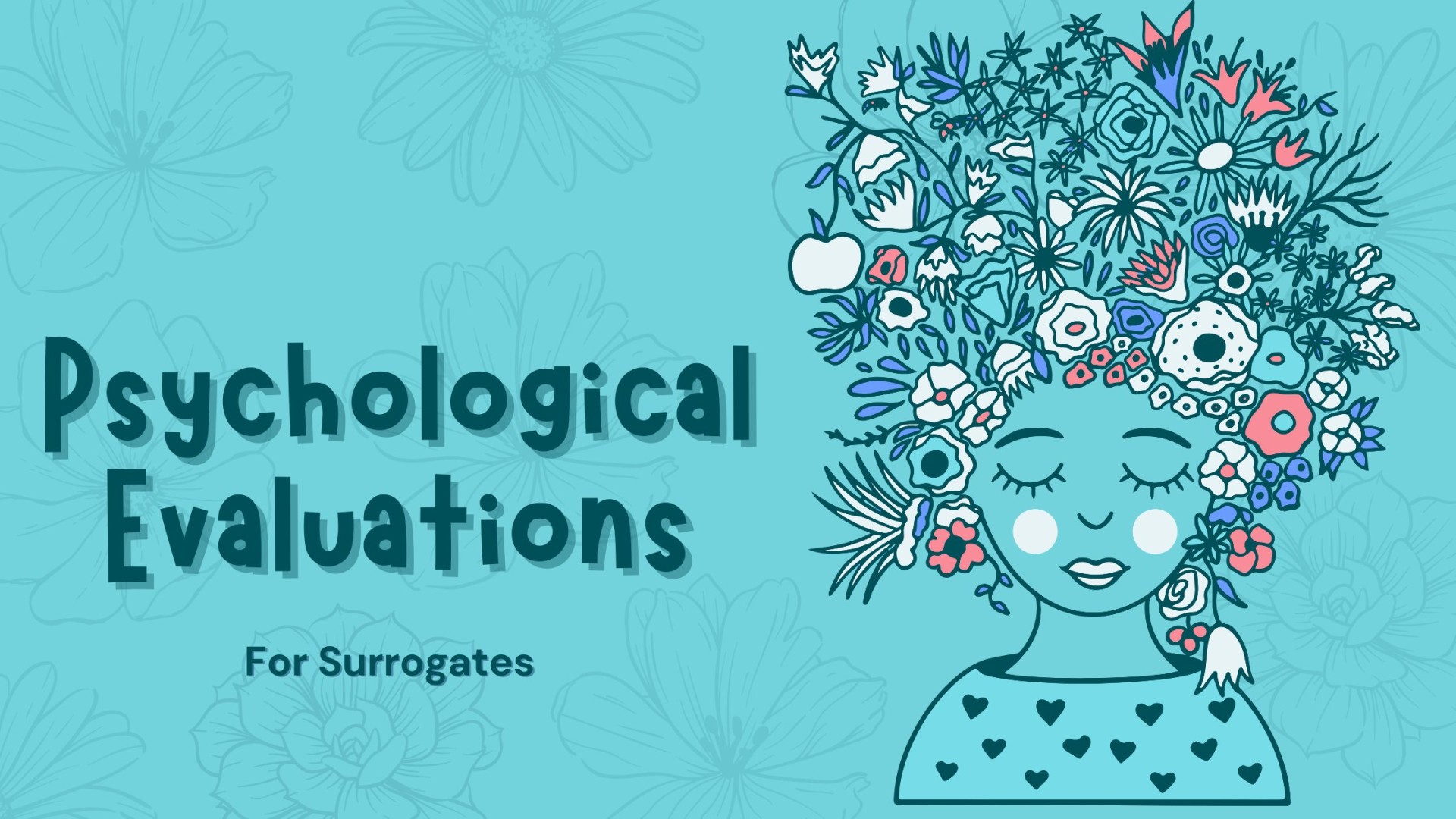One of the most important steps in preparing for your surrogacy journey is the psychological evaluation, which will take place once you have been matched with intended parents. Surrogate Solutions partners with mental health practitioners like Leslee Murphy, who specialize in the field of third-party reproduction, to conduct the evaluations.
“The evaluation is just as much for the surrogate as it is for the agency or clinic; it helps her and her partner prepare for the entire process,” says Leslee, who has 15 years of experience in working with surrogates and intended parents. “We want to make sure that she not only meets the criteria to serve as a gestational carrier but that it is going to be a positive experience for her and her family.”
We understand that undergoing a psychological evaluation can be intimidating, which is why we recently sat down with Leslee and asked to her share what surrogates should expect during their evaluation. Our hope is that the following information helps you feel more comfortable and at ease with this part of the process.
It’s a time commitment.
The evaluation takes about three hours to complete and may be done virtually or in person. It includes both a clinical interview and a personality assessment with each component lasting about 90 minutes. The first part of the clinical interview will be focused on getting to know you, your history and current family situation. Topics covered will include your personal and family health history; your reproductive history and any related complications; any potential stressors that could impact the surrogacy process; coping techniques; and your current relationship and family life (including how long you’ve been with your spouse/partner, if there is any history of separation, if your family is complete, etc.).
The second part of the clinical interview will explore your motivation for becoming a surrogate, your desired relationship with the intended parents and any preferences you might have for the pregnancy and delivery. It also will focus on preparing you for everything involved in the surrogacy process.
“We talk a lot about informed consent to ensure the surrogate understands what is required of her and her family,” Leslee explains. “This includes discussing IVF procedures and medications, the legal agreement and navigating potential obstetric complications like bedrest, hospitalization or early delivery.”
Other topics discussed will include your views on issues like termination, the number of embryos you’re willing to transfer and the COVID-19 vaccine, as these are important decisions where it is imperative for surrogates and intended parents to be on the same page.
Your partner is expected to attend.
Surrogacy impacts the entire family, and it’s important for you to have a strong support system throughout your journey. Your spouse or significant other will be asked to join the clinical interview portion of the appointment to ensure he or she is also prepared and knows what to expect.
“We want to make sure the surrogate’s partner is supportive of her decision to help create a family and feels included in the journey,” Leslee says. “The evaluation offers partners an opportunity to ask questions and address any concerns they might have about the process.”
You’ll receive guidance on how to explain surrogacy to your children.
In helping prepare surrogates and their partners for the journey, Leslee provides tips on how to explain surrogacy to their children. She recommends parents tell their children as soon as they feel safe with the pregnancy and says that reading a book about surrogacy, like The Kangaroo Pouch, can help explain the concept to young children.
“It’s important for the surrogate and her partner to be transparent with their children from the beginning about how she is carrying the baby for another family who cannot have children on their own,” Leslee says. “I recommend they approach it from the perspective that the entire family is helping the intended parents have their baby. Kids can help by doing things for their mom and being patient and understanding when mom doesn’t feel well or needs extra rest.”
You and your partner will have a future session with the intended parents.
While your desired relationship with the intended parents will be discussed during the evaluation, a more in-depth discussion will take place during a future joint session with the intended parents once the medical screening is complete and the legal agreements have been signed.
“During the joint session, we bring both parties together to discuss their expectations and effective communication for the desired relationship,” Leslee says. “We want this to be a positive experience for everyone involved, so we provide guidance on how to navigate the relationship, which often continues long after the baby is born.
Surrogate Solutions does a great job of pre-screening and educating surrogates and matching them with intended parents. The surrogates I see through Surrogate Solutions are the among the most genuine I have encountered in their motivation – they truly want to help create a family and be part of something bigger than themselves.”
Have you considered becoming a surrogate? We currently have more than 60 couples waiting to be matched and YOU could be the solution to helping them create their happy family.
About Leslee Murphy
Leslee Murphy is a Licensed Clinical Social Worker with 30 years of experience. She has a unique specialization in women’s health, providing counseling and wellness services across all stages and ages of life.
Leslee provides evaluations and consultations in the field of third-party reproduction, including oocyte donation, embryo donation, donor insemination and gestational carrier arrangements. Her expertise in the fertility field stems from a unique combination of both personal and professional experience. For more information, visit www.lesleemurphy.com.
Tune in here to Leslee on our Podcast, In this episode we discuss the importance of that psychological consultation piece that is part of a surrogacy journey and how this is so vital as you begin to build a relationship between intended parents and gestational carriers.













